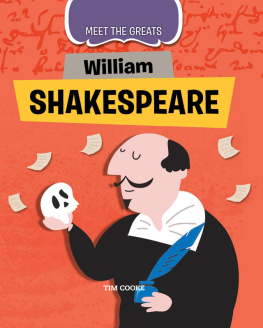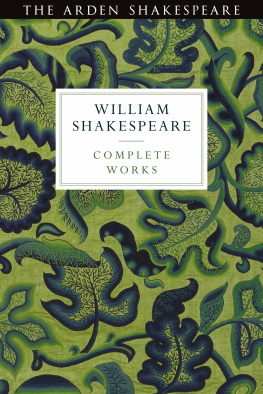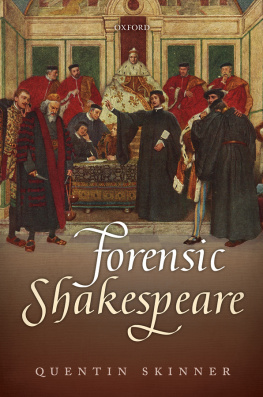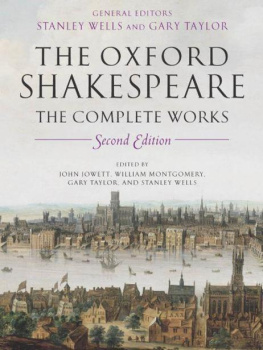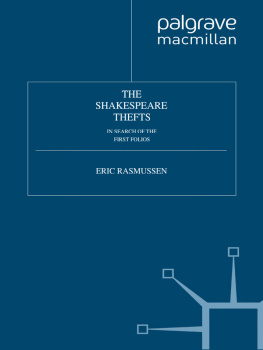Rasmussen Eric - William Shakespeare Complete Works
Here you can read online Rasmussen Eric - William Shakespeare Complete Works full text of the book (entire story) in english for free. Download pdf and epub, get meaning, cover and reviews about this ebook. City: New York, year: 2007, publisher: Random House, genre: Non-fiction. Description of the work, (preface) as well as reviews are available. Best literature library LitArk.com created for fans of good reading and offers a wide selection of genres:
Romance novel
Science fiction
Adventure
Detective
Science
History
Home and family
Prose
Art
Politics
Computer
Non-fiction
Religion
Business
Children
Humor
Choose a favorite category and find really read worthwhile books. Enjoy immersion in the world of imagination, feel the emotions of the characters or learn something new for yourself, make an fascinating discovery.

- Book:William Shakespeare Complete Works
- Author:
- Publisher:Random House
- Genre:
- Year:2007
- City:New York
- Rating:4 / 5
- Favourites:Add to favourites
- Your mark:
- 80
- 1
- 2
- 3
- 4
- 5
William Shakespeare Complete Works: summary, description and annotation
We offer to read an annotation, description, summary or preface (depends on what the author of the book "William Shakespeare Complete Works" wrote himself). If you haven't found the necessary information about the book — write in the comments, we will try to find it.
William Shakespeare Complete Works — read online for free the complete book (whole text) full work
Below is the text of the book, divided by pages. System saving the place of the last page read, allows you to conveniently read the book "William Shakespeare Complete Works" online for free, without having to search again every time where you left off. Put a bookmark, and you can go to the page where you finished reading at any time.
Font size:
Interval:
Bookmark:
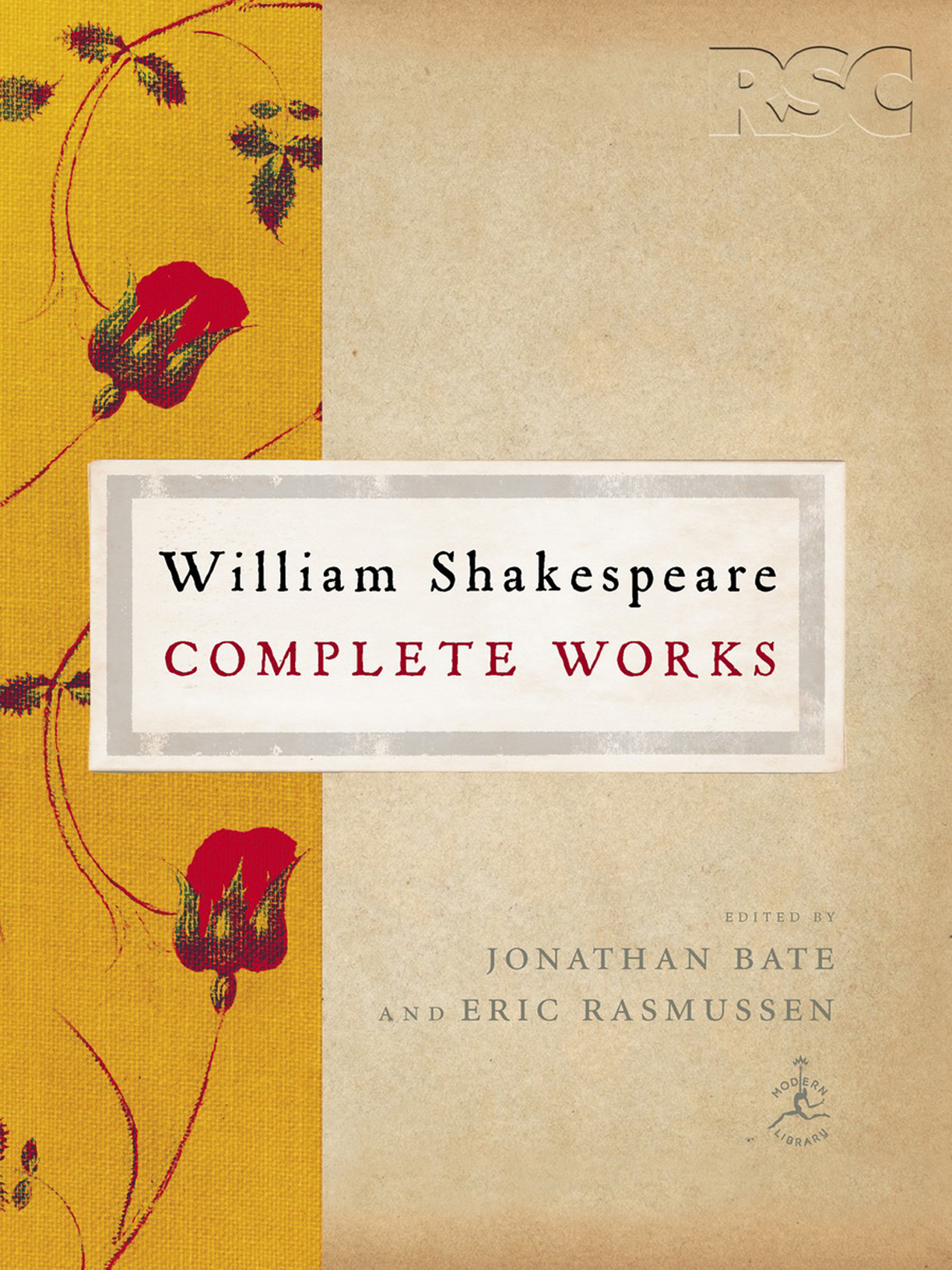

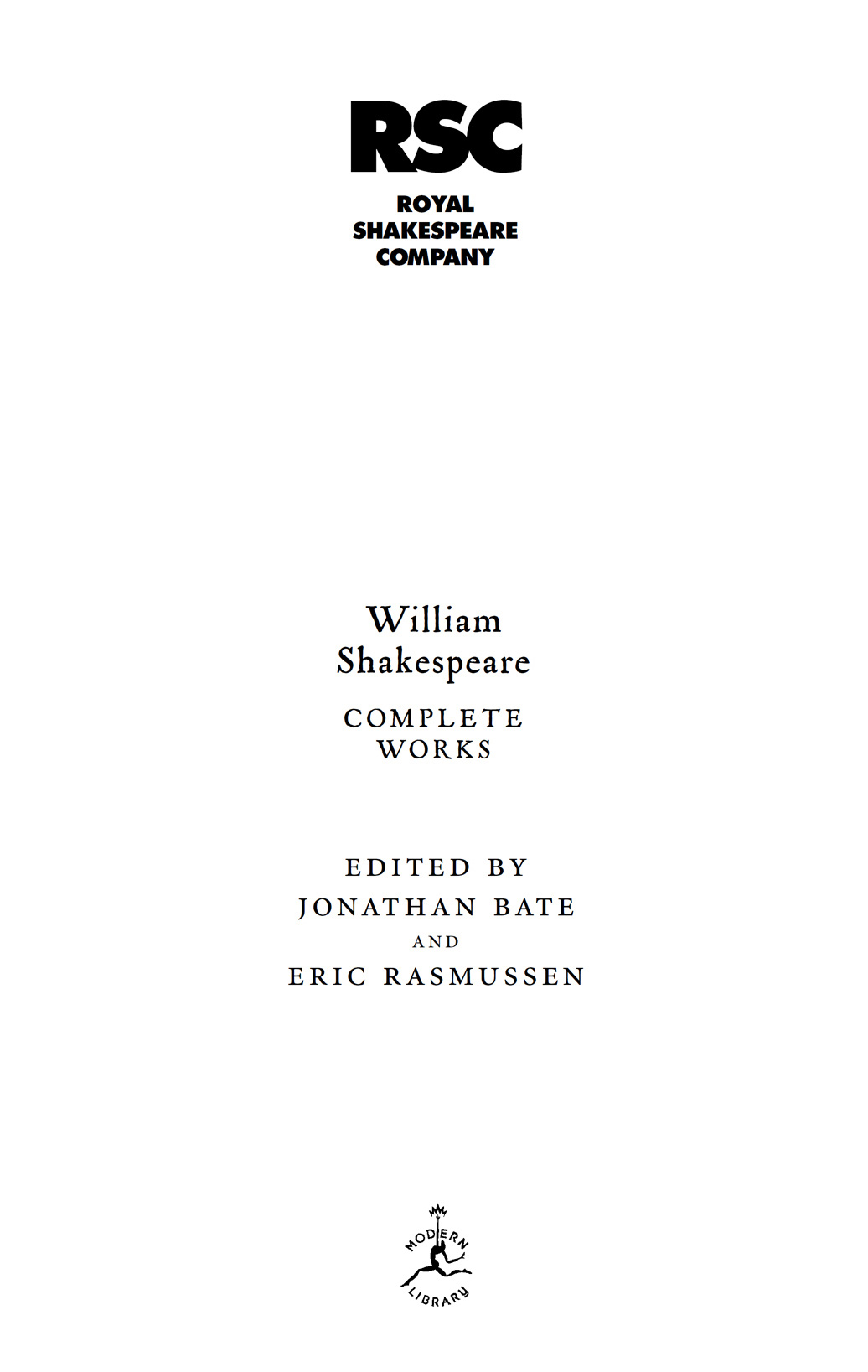

Jim Davis, Professor of Theatre Studies, University of Warwick, United Kingdom
Charles Edelman, Senior Lecturer, Edith Cowan University, Western Australia
Lukas Erne, Professor of Modern English Literature, Universit de Genve, Switzerland
Maria Evans, Director of Learning, Royal Shakespeare Company
Akiko Kusunoki, Tokyo Womans Christian University, Japan
Ron Rosenbaum, author and journalist, New York, United States
James Shapiro, Professor of English and Comparative Literature, Columbia University, United States
Tiffany Stern, Beaverbrook and Bouverie Fellow and Tutor in English, University of Oxford,
United Kingdom Editorial Assistants Christopher Campbell
Penelope Freedman
James Gibson
Sophie Holroyd
Ayako Kawanami
Takashi Kozuka
Esme Miskimmin
Oliver Phillips
Paul Prescott
Charlotte Scott
Will Sharpe
Erin Sullivan 2007 Modern Library Edition Copyright 2007 by The Royal Shakespeare Company All rights reserved. Published in the United States by Modern Library, an imprint of The Random House Publishing Group, a division of Random House, Inc., New York M ODERN L IBRARY and the T ORCHBEARER Design are registered trademarks of Random House, Inc. Royal Shakespeare Company, RSC, and the RSC logo are trademarks or registered trademarks of The Royal Shakespeare Company. ISBN9780679642954
eBook ISBN9780345546562 www.modernlibrary.com v4.0 a
Eric Rasmussen has been like a stage director overseeing the performance of the complete works: line by line, through nearly a million words of Shakespeare, he has made choices about modernization, punctuation, emendations, and stage directions. He has edited thirty of the thirty-eight plays in this edition and checked the remaining eight, for which primary credit belongs to Eleanor Lowe (King John, 1 and 2 Henry VI, Henry VIII, Coriolanus), Dee Anna Phares (Macbeth and Othello), and Lucy Munro (Pericles). Jonathan Bate edited the poems and sonnets, with assistance from Jan Sewell, Penelope Freedman, and James Gibson. Hlose Snchal was chief commentary editor, researching and writing the explanatory notes for about half the plays herself and revising the initial work on the other half, which was undertaken by Eleanor Lowe, Jan Sewell, Charlotte Scott, Esme Miskimmin, Penelope Freedman, Christopher Campbell, Takashi Kozuka, and Erin Sullivan. First pass edits, establishing the core of the play texts, were undertaken by Sophie Holroyd, Trey Jansen, Dee Anna Phares, and Will Sharpe. Ayako Kawanami and Paul Prescott assisted with text preparation early in the project, and Oliver Phillips with tabular material.
Jan Sewell and Trey Jansen played the hugely important role of checking, improving, and proofreading every work. Equally indispensable was our eagle-eyed copy editor, Tracey Day. Over fifteen person-years of editorial labor have gone into the project and every word of Shakespeare has been scrutinized by five or six pairs of editorial eyesbut still, as in every previous edition, there are bound to be errors, and we would like to express our gratitude in advance to any readers who may draw our attention to them via the editions website, www.therscshakespeare.com. Every effort will be made to incorporate corrections in later reprints and our forthcoming editions of individual works. Also to be found at the website are an array of supporting materials, including hints on Shakespearean verse speaking with audio examples, a bibliography (readily updatable online as it could not be in print), a more detailed account of our editorial procedures than that provided in the general introduction, and RSC production histories of all the plays. We gratefully acknowledge the work of our many predecessors in bringing Shakespeare from script to print.
We have been especially influenced by the following: John Hemings, Henry Condell, Ralph Crane, Isaac Jaggard, Edward Blount, and their collaborators for the production of the First Folio; Nicholas Rowe and his successors for establishing the modern editorial tradition; Samuel Johnson for principles that helped to shape this edition; the select company of editorsCharles Knight, Charlotte Porter and Helen Clarke, Herbert Farjeonwho stayed loyal to the Folio in the centuries dominated by conflations and Quartos; successive generations of editors for Oxford, Cambridge, and the Arden series; the example of David Bevington; Stanley Wells and his collaborators on the 1986 Oxford edition for a new paradigm against which to measure ourselves. The theoretical and practical work of many scholars has helped to shape our editorial principles, but special notice should be given to the work of Peter Blayney, Lukas Erne, John Jowett, and Paul Werstine. Our explanatory notes owe an immense debt not only to the commentaries of previous editions, but also to the creators of the Oxford English Dictionary Online, Early English Books Online, and Literature Online, the editors of Athlone Shakespeare Dictionaries, and the work of David and Ben Crystal (Shakespeares Words), Ian Lancashire (Early Modern English Dictionary Database and Lexicons of Early Modern English), and Gordon Williams (Dictionary of Sexual Language and Imagery in Shakespearean and Stuart Literature and A Glossary of Shakespeares Sexual Language). We have always been conscious of standing on the shoulders of giants, while being aware that our predecessors will disagree with several of our key principles and hundreds of our local decisions. Such is the process of Shakespearean editing, which will continue so long as the plays are read and performed.
Font size:
Interval:
Bookmark:
Similar books «William Shakespeare Complete Works»
Look at similar books to William Shakespeare Complete Works. We have selected literature similar in name and meaning in the hope of providing readers with more options to find new, interesting, not yet read works.
Discussion, reviews of the book William Shakespeare Complete Works and just readers' own opinions. Leave your comments, write what you think about the work, its meaning or the main characters. Specify what exactly you liked and what you didn't like, and why you think so.

